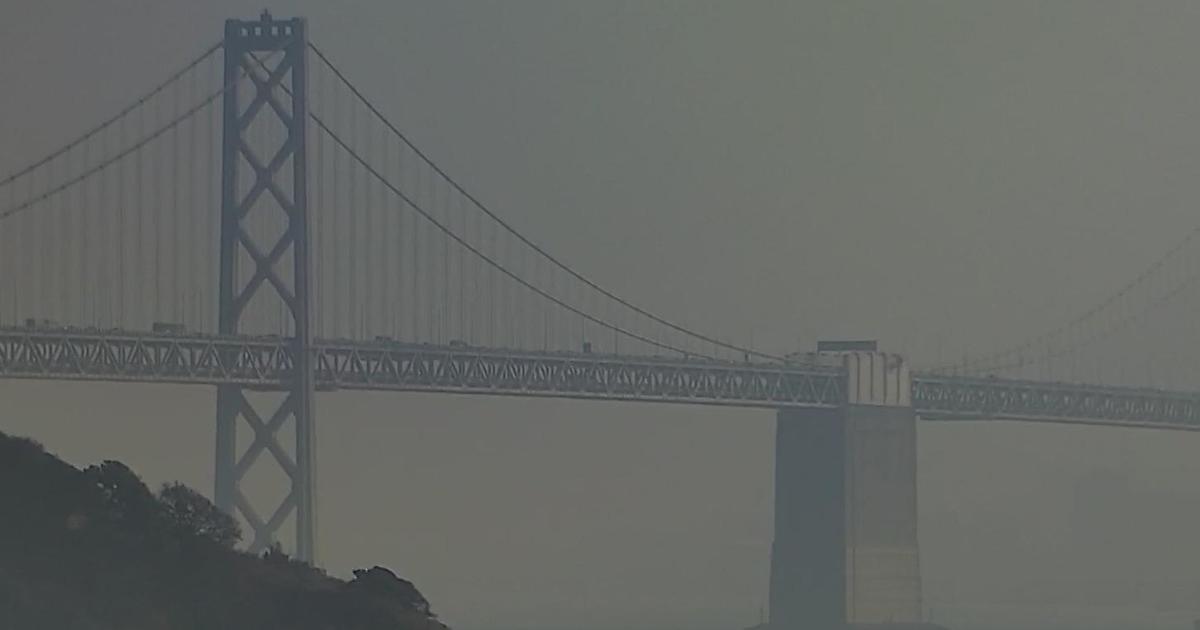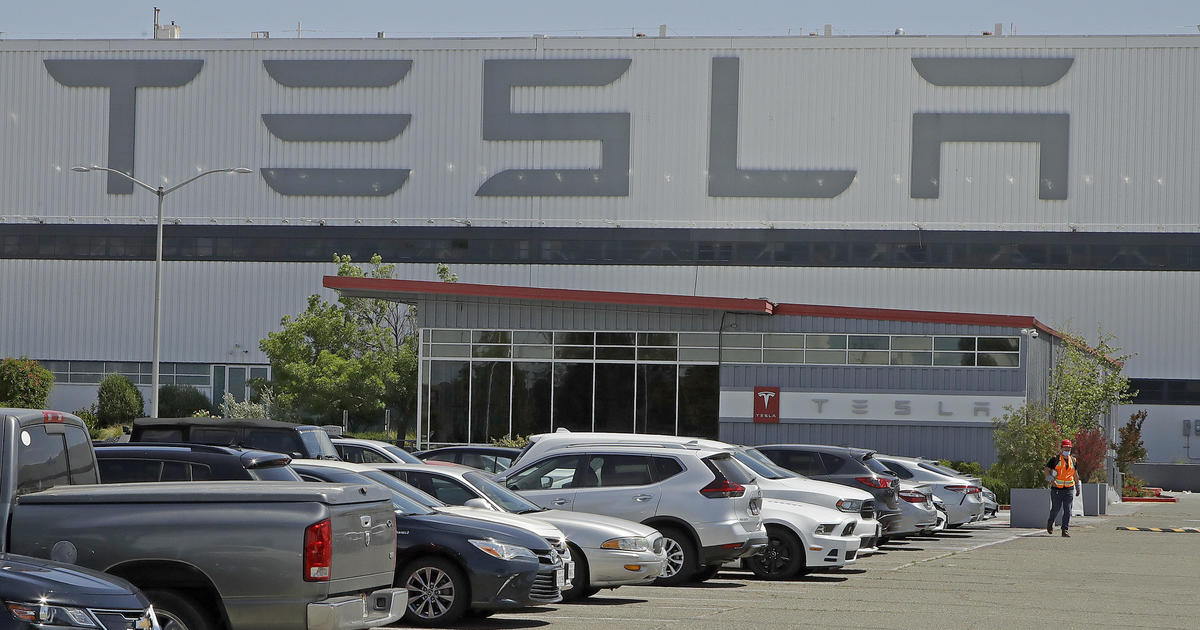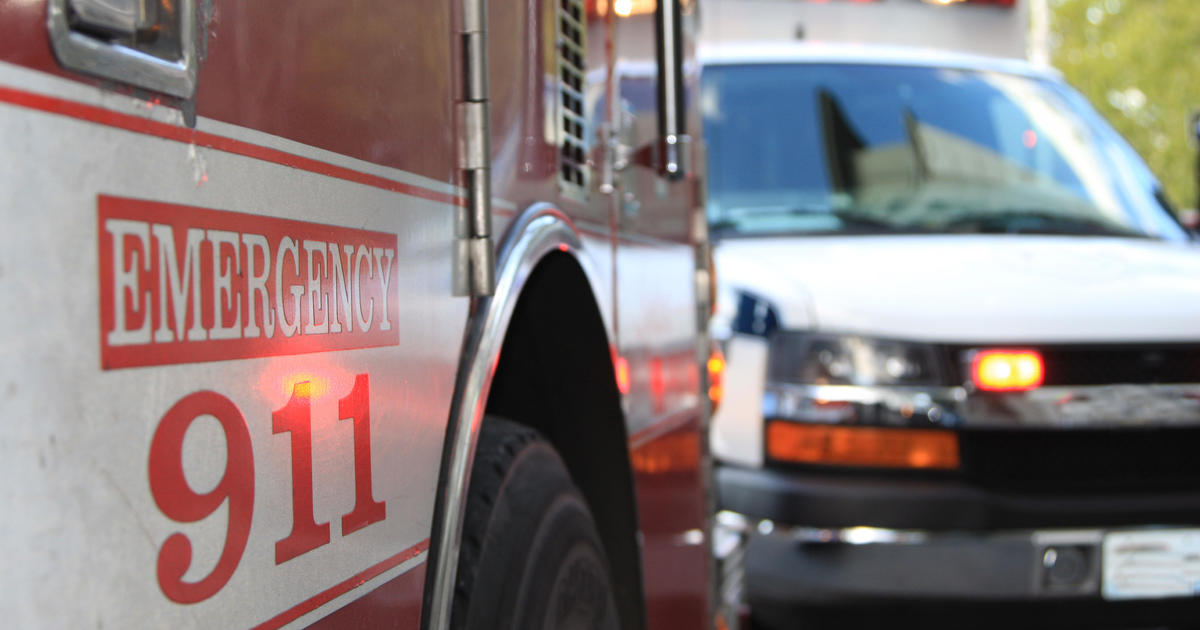Bay Area COVID Roundup: Emergency Room Worker Dies Amid Kaiser Permanente Outbreak; US Falls Short of Vaccine Goal; Expert Questions Stay-At-Home Order
CBS San Francisco Staff Report
SAN FRANCISCO (CBS SF) -- With a surge in coronavirus cases, the information you need to know is coming fast and furious. Here's a roundup of the COVID stories we've published over the last 24 hours.
Emergency Room Worker Dies Amid Kaiser Permanente San Jose Medical Center Outbreak
SAN JOSE -- An emergency room employee "has passed away as a result of COVID-19 complications" amid an outbreak that has led to 43 staff members in the department testing positive for the virus. In a statement released Sunday night, the hospital confirmed the death but did not indicate if the employee was among the 43 who have tested positive for COVID-19 since Dec. 27th. "Out of respect for patient privacy and the family, we have no additional information to provide," hospital officials said in their statement released to the San Francisco Chronicle. Officials confirmed the outbreak on Saturday evening. In a statement to KPIX 5, Irene Chavez, senior vice president and area manager, Kaiser Permanente San Jose Medical Center, said the outbreak began on Dec. 27. Read More
US Falls Short of Vaccine Goal; Experts Debate Delaying Second Doses of Vaccine
SAN FRANCISCO -- The COVID-19 vaccine rollout is falling millions of doses short. The Trump administration promised 20 million doses would be given by the end of 2020, but the CDC says just over 4 million people have gotten the shot. "There are vaccines sitting around. It's not that we don't have the shots in the US. We just don't have the well-oiled machinery to administer those shots," said UCSF Infectious Disease Specialist Dr. Peter Chin-Hong. Dr. Chin-Hong says there are a variety of factors at play, including a lack of cold storage space and manpower. States also need more money from the federal government to support distribution. Former FDA Commissioner Scott Gottlieb spoke on Face the Nation Sunday. Read More
Restrictive Messaging, 'Pandemic Resentment' Contribute to California COVID Surge
SAN FRANCISCO -- Despite having the strictest guidelines, California leads the nation in COVID-19 cases. Some doctors are blaming inconsistencies in the messaging for leading people to form their own guidelines. "Earlier in the pandemic, it was easier to do messaging because it was new, everyone was afraid," said Dr. Peter Chin-Hong, infectious disease specialist at UCSF. "Right now it's very difficult. It's like saying 'don't smoke' instead of trying to meet people where they are." While most people trust the science, they say the restrictions don't always make sense. "(Health officials) say you can't come to the restaurants, eat outside but yet you can still go and do some shopping in some malls. The messaging could be a little better," said San Francisco resident Dennis Brown. The latest stay-home order also prompted health officials in the Bay Area to tell people to pop their social bubble and stop gathering with anyone outside of their household. Many people are ignoring that advice. Read More
Mariachi Bands Struggle To Stay Together During Pandemic
SAN JOSE -- Many mariachi bands in the Bay Area are faced with putting down their guitars and hanging up their sombreros as the pandemic ranges on. With the shutdown of restaurants and the cancellation of many gatherings where mariachis would often play -- weddings, baptisms, quinceañeras -- the traditional Mexican music groups are hard-pressed to find work. "To be told that on the weekend there won't be any work, it saddens me," Rodolfo Torres of San Jose-based Mariachi Mi Mexico por Siempre said in Spanish, "not only because I'm not making money, but because I can't do what I love." The shortage of playing jobs is especially hard on mariachi members whose livelihood depends on playing. Torres said the money he earned from playing with the group was his primary source of income. Read More
UCSF Infectious Disease Expert Says Indefinite Stay-at-Home Order Wrong Call, Not Data-Driven
SAN FRANCISCO -- The Embarcadero was virtually empty Saturday night amidst a light drizzle. It'll likely stay relatively quiet, since San Francisco has extended its stay-at-home and 10-day travel quarantine orders indefinitely. UCSF infectious disease expert and medical director of the HIV Clinic at Zuckerberg San Francisco General Hospital Director Dr. Monica Gandhi says the city's decision is not data-driven. "We never reached those hospitalizations or ICU capacity concerns that the state had set as metrics for this degree of shutdown," she said. "And then to continue it indefinitely, as kind of our New Year's present to San Francisco, didn't make sense to me." San Francisco is in better shape than most of the Bay Area and the state of California. Currently about 30% of ICU beds are still available. The latest 7-day average of new cases daily is 206 as of December 25, compared with 290 on December 16. The city says preliminary data shows that the orders seemed to have slowed infections. Read More
Bay Area ICU Capacity Drops to Record Low but Experts See Glimmer of Hope
SAN FRANCISCO -- State stay-at-home orders will remain in effect in the Bay Area until at least Jan. 8 with potential to extend depending on intensive care unit capacity projections, state health officials said Saturday. The state's stay-at-home order is triggered when a region's average ICU capacity falls below 15 percent. The Bay Area's current ICU capacity is at 5.1 percent, according to the California Department of Public Health. The San Joaquin Valley, southern California and greater Sacramento regions remain under the stay-at-home orders because their four-week ICU capacity projections do not meet the capacity to exit the order, the department said. The available capacity in the greater Sacramento region is 6.9 percent, while the San Joaquin Valley and southern California regions are down to a grim 0 percent, according to the department. Read More
Marin Set To Open Drive-Thru Self Testing Site At Civic Center
SAN RAFAEL -- With demands for testing during the recent COVID surge soaring, Marin County health officials announced Saturday they would be opening a new drive-thru test location at the Civic Center. Six locations were announced on December 17, and a seventh location that will operate five days per week is set to open on Wednesday. The new drive-through testing location offers FDA-authorized pain-free swabbing that is self-administered. Instead of doing nasal swabs, residents will simply open a swab package, cough deeply three to five times and swab inside each cheek, upper and lower gum, underneath and on top of the tongue, and the roof of the mouth. The swab is then placed inside a biohazard bag and returned to a test site worker. Results are returned within 72 hours by email or text. Read More
Surging COVID Death Toll Straining Southern California Mortuaries
LOS ANGELES -- As the death toll of COVID victims continued to mount this week, funeral homes in Southern California were turning away bereaved families because they're running out of space. On Saturday, the Los Angeles County health department reported 207 of the state's 386 new deaths. Across the state, health officials reported a record 585 coronavirus deaths in a single day on Friday. "I've been in the funeral industry for 40 years and never in my life did I think that this could happen, that I'd have to tell a family, 'No, we can't take your family member,'" said Magda Maldonado, owner of Continental Funeral Home in Los Angeles. This week Continental averaged about 30 body removals a day — up from about five during normal times, Maldonado said Wednesday. She said mortuary owners are calling each other to see if anyone can handle overflow, and the answer is always the same: Sorry, we're full too. Read More
COVID Cases Surging; State Reports Record 585 Virus Deaths In Single Day
LOS ANGELES -- California started the new year by reporting a record 585 coronavirus deaths in a single day after a health official said the pandemic was pushing state hospitals to the "brink of catastrophe" as some medical centers scramble to provide oxygen for the critically ill. The California Department of Public Health on Friday reported more than than 47,189 new confirmed COVID-19 cases, bringing the total to nearly 2.3 million. Nearly 26,000 people have died from the virus in the state. The previous single-day record of 432 deaths was set on Tuesday. Gov. Gavin Newsom's office announced California would begin collaborating with the U.S. Army Corps of Engineers to evaluate and upgrade outdated oxygen delivery systems at six Los Angeles area hospitals. Read More
South Bay Small Business Owners' Optimism Tested as New Year Dawns With Virus Surging
SAN JOSE -- Many Bay Area business owners say they are limping in the New Year but are determined to fight to make it through the pandemic and public health orders. "Moving forward, we do so with a sense of guarded and cautious optimism," said Dan Holder, owner of Jack Holder's restaurant in San Jose. Holder says his business has struggled to survive ever-changing public health orders, vacillating between takeout, outdoor and limited indoor dining during the summer and fall. "We were asked to prepare ourselves for outdoor dining. We did. We spared no expense. We all invested quite a bit of money and the goal posts were continually being moved," says Holder. Holder gave voice to the frustration of many business owners who have not been able to operate their businesses in traditional ways -- if at all -- during the pandemic. Read More
California Taps Army Corps To Help Upgrade Hospital Tech
SAN JOSE -- California hospitals ended the year on "the brink of catastrophe," a health official said as the pandemic pushed deaths and sickness to staggering levels and some medical centers scrambled to provide oxygen for the critically ill. Gov. Gavin Newsom's office announced Friday that California would begin collaborating with the U.S. Army Corps of Engineers to evaluate and upgrade outdated oxygen delivery systems at six Los Angeles area hospitals. Assessments could begin as early as Saturday, according to a statement from the governor's office. The collaboration comes as older hospitals are having difficulty maintaining oxygen pressure in aging infrastructure and some were scrambling to locate additional oxygen tanks for discharged patients to take home. "By working to upgrade challenged oxygen delivery systems at these older hospitals we can improve the ability to deliver life sustaining medical care to those who need it," said Mark Ghilarducci, director of the Governor's Office of Emergency Services. Read More



